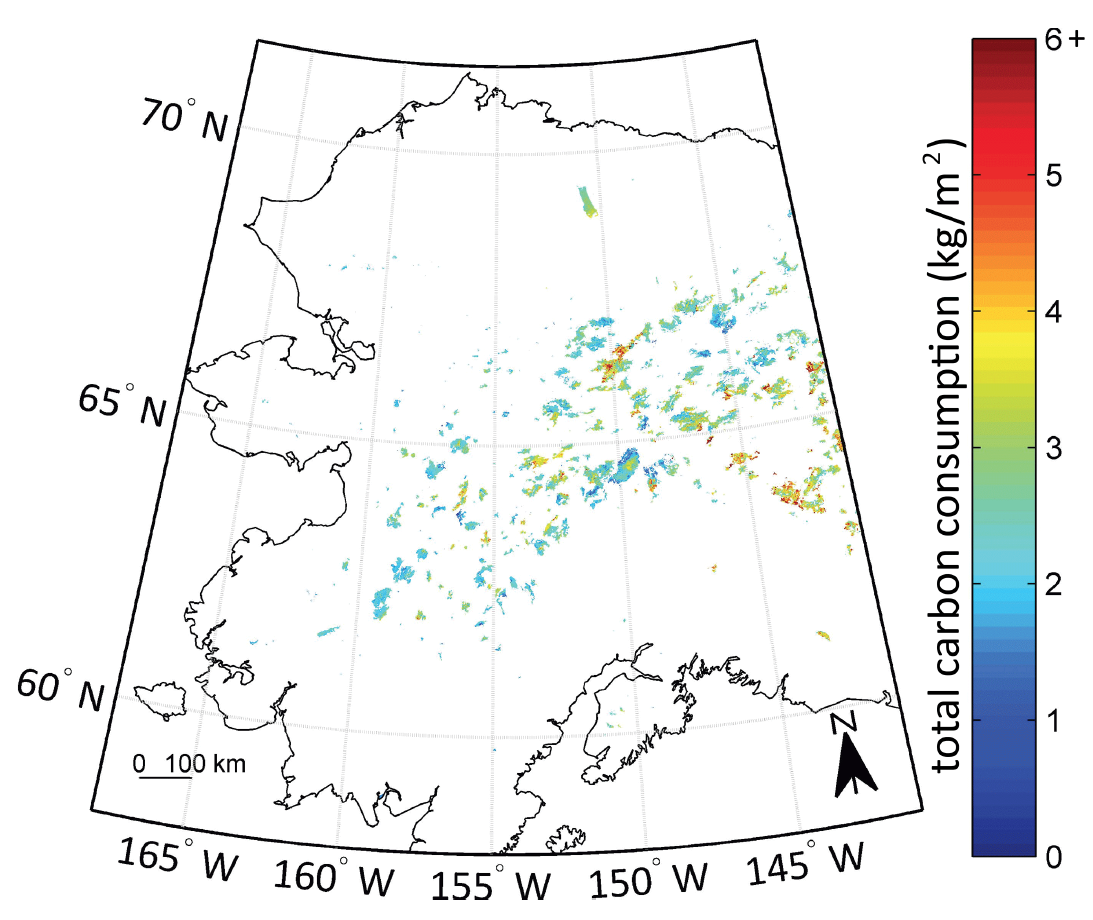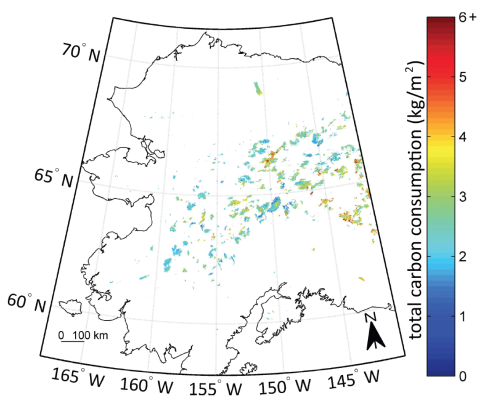CARVE: Alaskan Fire Emissions Database (AKFED) 2001-2013
AKFED includes annual burned area for 2001 to 2013. Above- and below-ground carbon consumption by fire were modeled based on environmental variables including elevation, day of burning within the fire season, pre-fire tree cover and the differenced normalized burn ratio (dNBR). Modeled uncertainties in carbon consumption are included in the data set. The derived burn area and carbon emissions product, referred to as the Alaskan Fire Emissions Database (AKFED), provides a resource for study of the environmental controls on daily fire dynamics, boreal fire emissions in biogeochemical models, and potential feedbacks from changing fire regimes.
The Carbon in Arctic Reservoirs Vulnerability Experiment (CARVE) is a NASA Earth System Science Pathfinder Mission. From 2011 to 2015, CARVE collected airborne measurements of atmospheric carbon dioxide, methane, and carbon monoxide and relevant land surface parameters in the Alaskan Arctic. Continuous ground-based measurements provide temporal and regional context as well as calibration for CARVE airborne measurements. CARVE provides an integrated set of greenhouse gas data that provides experimental insights into Arctic carbon cycling.
Data Acknowledgements:
Data authors: Veraverbeke, S., B.M. Rogers, and J.T. Randerson.
Data center: ORNL DAAC (http://daac.ornl.gov)
Sponsor: NASA EOSDIS (http://earthdata.nasa.gov)
Data Set DOI: 10.3334/ORNLDAAC/1282


